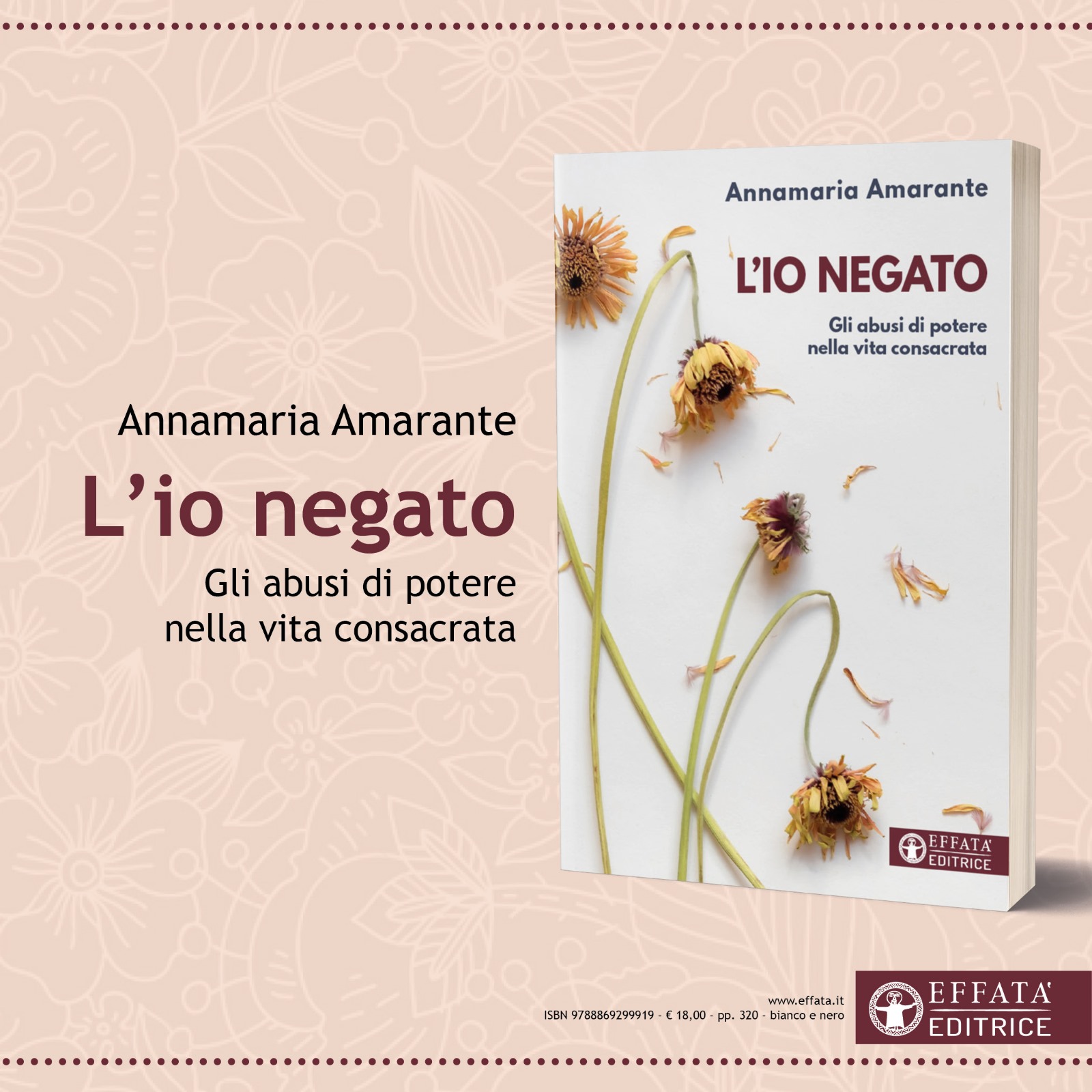
Annamaria Amarante: The denied self
Abuses of power in consecrated life
A compelling reflection on consecrated life and abuse within religious communities. In “The Denied Self,” Annamaria Amarante shares her personal testimony and analyzes the deep roots of a complex problem. Through open and incisive dialogue, she explores the dynamics of power, the need for renewed spirituality and the path to healing and conversion.
Below is an interview with author Annamaria Amarante.
What was the origin of the book
This book was born from the lived experience as a woman, consecrated and member of a Community who has known and gone through in her own flesh the drama of sexual abuse, conscience and power. I consider myself a secondary victim of these abuses, that is, one of those who has not personally suffered the trauma of sexual abuse, but who has lived for more than fifteen years in a community context inhabited by abusive practices so frequent and established that they appear even to my eyes as normal. At the same time, precisely within the Villaregia Missionary Community, I was able to grow and mature in my faith and awareness of my missionary vocation. I found in this ecclesial space a living and fruitful charism and a way of living mission from an authentic community life, both of which have allowed and still foster my flourishing and the fullness of my life.
This book was born precisely out of this experience: the painful experience of abuse and the hope-filled experience of a Community that wants to walk in the footsteps of Jesus, grasping as providential even the wounds of the past in order to contribute to the shaping of a Church that is more humble, more aware of its own smallness, more convinced that fraternity is the only possible path.
Why a book on abuse in consecrated life?
For several years now, there has been an ongoing reflection on the phenomenon of abuse in the Church, always, however, declined in its form of sexual abuse of children and adolescents, which, surely, represents its most dramatic and disconcerting face. The issue of abuse of adults has remained in the background and only recently has it begun to be discussed, capturing dynamics common to all forms of abuse, but also its own characteristics and, above all, a systemic trend that needs to be deepened, thematized and narrated in its complexity.
The same can be said for abuse within consecrated life: there is still a lack of reliable data to grasp the extent of this phenomenon, but research already carried out in several countries speaks of a submerged reality involving both new communities and movements and religious institutes that have centuries of history behind them. There is still much research to be done, however, to investigate the interactions between different forms of abuse and to grasp what theological/spiritual elements, relational modes and institutional practices need to be renewed for consecrated life to be faithful to its evangelical mandate.
How to prevent abuse within the Church?
Faced with such a complex issue, I do not believe it is possible to identify a single path that will ensure effective prevention. There are at least three paths to be crossed: that of a clear and renewed vision from a theological and spiritual point of view, the path of new relationships more marked by fraternity, ministeriality and synodality, and, finally, the path of a revision of institutional structures and dynamics that translates also at the normative level the conversion and renewal that are already at work in many ecclesial realities.
Why everything depends on power
Power is the ability we humans have to change reality, to act in this world to make it a habitable and safe place. But it is also the power to overpower another and enslave him or her for our own interest or for interests that are other than the person in front of me. It is not power that causes abuse, but the use of it: when it is transformed from “power to act, to create, to accomplish” to “power over others, over things, over the community,” then we are already in the presence of a vulnerable dynamic that generates abuse.
How is it possible to reframe the experience in the Christian community?
I believe that the first duty is to talk about it, to address the issue with transparency and depth without limiting ourselves to defensive or reductive views. It is not enough to limit ourselves to the emotional upheaval in the face of the explosion of the scandal, nor is it enough to limit ourselves to the pars destruens that would claim to clearly distinguish which ecclesial realities are to be considered abusive and which are not. There is a need for reconstruction, a real pars construens that starts from listening to the victims and their narrative in order to seek together the right ways of restoring trust and hope. A face of the Church that is more aware of its own fragilities and for this reason more humble and open to confrontation: I believe this is the only way to reread even the drama of abuse from a ‘perspective of Resurrection.
